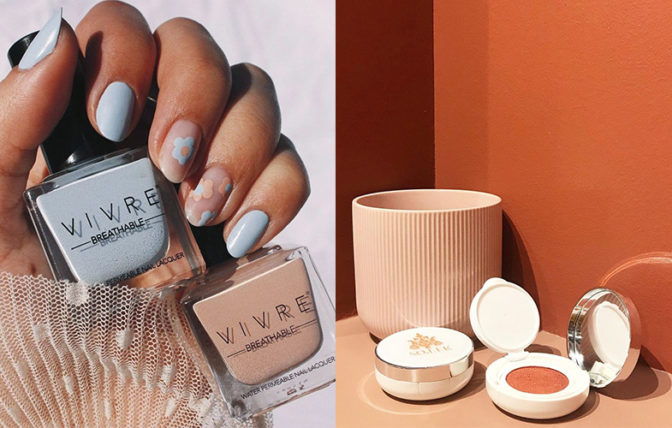
 "
"

 "
"

The acceptance of wuduk-friendly nail polish and modest fashion is growing among Muslim women, reflecting a shift in attitudes. Applying makeup has long been a challenge for Muslim women as it often hampers the performance of ablution (wuduk), requiring them to remove and reapply it after prayers. Although there is a demand for hassle-free, wuduk-friendly cosmetic products, entering this market has proven difficult for businesses.
In 2018, Nurzulkyah Minhad, co-founder of ELM Beauty, faced obstacles when introducing her wuduk-friendly nail polish in Malaysia. The prevailing mindset favored henna over nail polish, and there was a perception that Muslims had restrictions on what they could wear due to daily prayers. Nurzulkyah found more acceptance for her products in international markets such as Indonesia, Singapore, Brunei, and South Africa.
To be wuduk-friendly, nail polish should be free of impermissible ingredients and allow water to reach the nail beds. ELM Beauty’s halal nail polish is both breathable and permeable, enabling oxygen and water to pass through. Unlike conventional nail polish that expels water, ELM Beauty’s nail polish contains propylene glycol, allowing it to absorb water. It forms a layer similar to henna, which expands when frequently exposed to water, making it easier to remove.
Recognizing the limited open-mindedness towards wuduk-friendly cosmetic products in Malaysia, Nurzulkyah utilized TikTok videos to educate consumers about ELM Beauty’s products. ELM Beauty also considered “mualaf” (Muslim converts) who previously enjoyed wearing nail polish but were uncertain about wuduk application.
In addition to nail care, ELM Beauty offers cuticle care, cuticle oil, and cosmetic skincare. Nurzulkyah aspires to expand the brand to Dubai, the UK, and the US and plans to open a nail care spa in the Klang Valley.
Meanwhile, Hazwani Huda Hamdan, founder and CEO of Leinani Hijab, observes a growing acceptance of modest fashion compared to the 1990s. Influencers on social media have played a significant role in showcasing how to style modest wear, including layering trendy items. Major fashion brands, as well as celebrities like Rihanna, Kim Kardashian, and Beyoncé, have embraced modest attire.
Hazwani noticed that the hijab posed challenges for young girls, leading her to create instant and semi-instant hijabs that are easy to wear and do not require pins. Leinani Hijab focuses on high-quality materials and functionality, offering tie-back inners for comfort and adjustability. Instant hijabs have gained popularity due to their ease of use, eliminating the need for complicated wrapping techniques.
The rise in demand for wuduk-friendly cosmetics and modest fashion reflects a changing landscape where Muslim women seek products that align with their values while still offering style, comfort, and convenience.